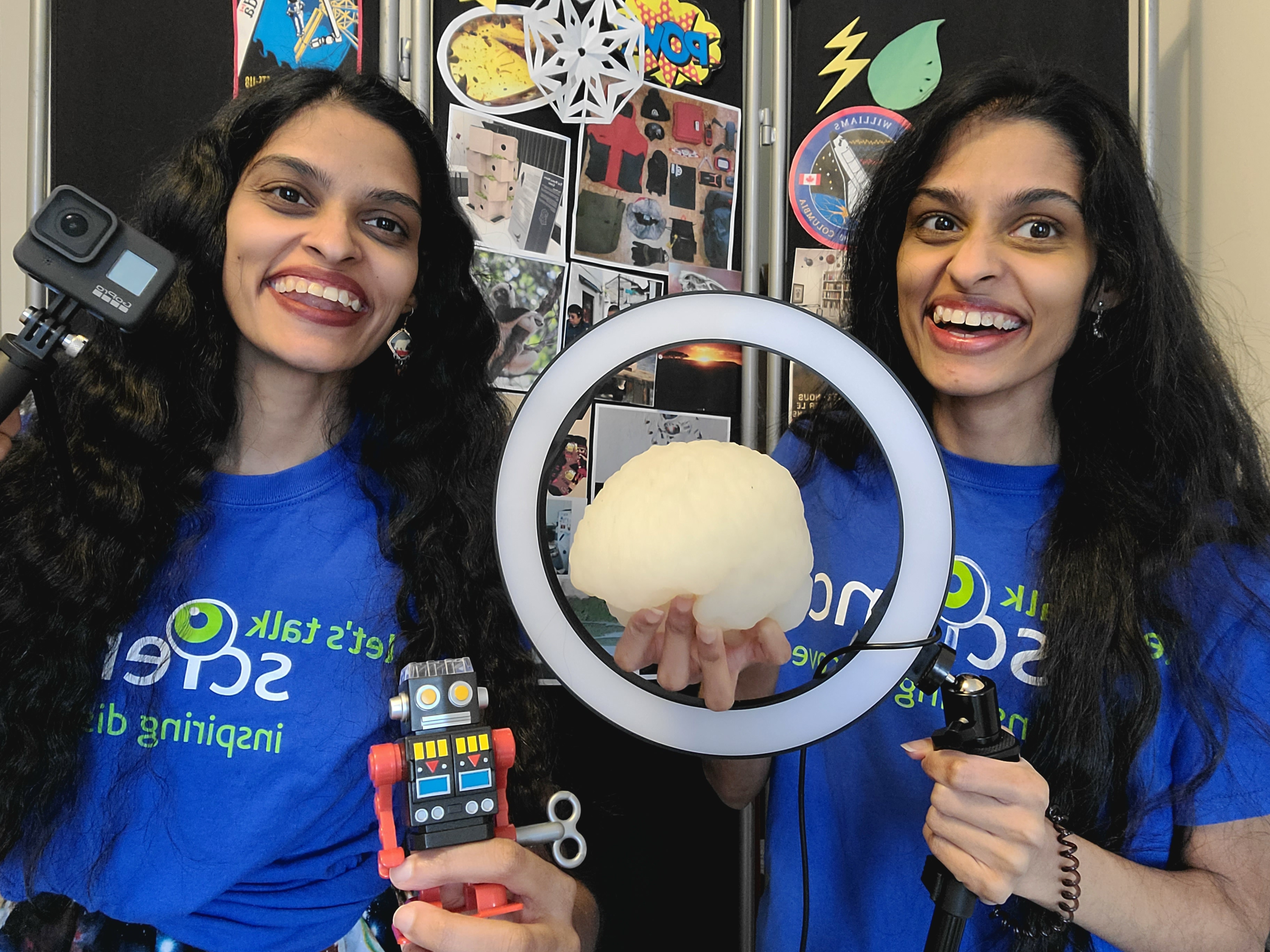Sandhya Mylabathula was at the end of her undergraduate degree at the University of Toronto Faculty of Kinesiology and Physical Education (KPE) when, inspired by her passion for hockey and Associate Professor Doug Richard’s course on sport medicine, she started working with her sister Swapna, also a student at U of T, to develop a Private Member’s Bill proposal to address concussions in Canada.
They conducted a literature review, engaged with experts and stakeholders within and outside sport, and developed several recommendations for both sport and non-sport contexts.
“One of these recommendations was to conduct more research on specific areas of importance,” says Mylabathula, “and I decided to contribute to that process myself by entering graduate school.”
In the meantime, the Private Member’s Bill was introduced into the House of Commons by MP Kirsty Duncan and Mylabathula was invited to give testimony as an expert witness at a federal sub-committee on concussions.
“Our updated recommendations were included in the sub-committee’s report and in 2021, our recommendation of a national concussion awareness week was implemented,” says Mylabathula. “In parallel, I consulted on concussion policy at the Ontario level, contributing to the PPM158 and what became Rowan’s Law, as well as research evaluating this policy.”
For her PhD studies, she initially explored rehabilitation in adults who sustained concussions in a non-varsity sport context, helping to develop and supervise a comprehensive exercise program that targeted balance, vision, cognitive, strength and cardiovascular functioning, while examining psychological aspects of recovery.
Due to the pandemic, she had to switch gears completely and focused on researching non-varsity concussions at U of T, examining available resources and developing new ones to fill gaps, and exploring concussed post-secondary students’ experiences with academic accommodations. Throughout this process, she continued to work on the policy front, as well as education and awareness as a science communicator.
“A concussion is a serious brain injury that can occur to anyone and may result in debilitating physiological, psychological and social consequences,” says Mylabathula. “The focus on elite sport and concussions is important, but consequently there is a lack of awareness and resources for the many who sustain their injuries in other ways, which can adversely affect their recovery.”
One of the biggest highlights of her time at KPE was the opportunity to deliver her own course based on her concussion research and policy experience, for which she was awarded the CTSI Course Instructor Award. She also loved having the opportunity to share her knowledge and learn from others through conferences, which helped her to see more of Canada, too.
“St. John’s, Newfoundland, and Whitehorse, Yukon were particularly stunning,” she says. “But perhaps the most moving part of my research came from working directly with my research participants – they motivated me through the harder parts of my degree.”
As a graduate student at U of T, Mylabathula felt it was important to try to improve the quality of student life. She is particularly proud of her involvement with Let’s Talk Science and the Governing Council, where she represented the graduate student voice for life and physical sciences.
“I am grateful for the support from my supervisory committee, Professors Lynda Mainwaring, Doug Richards, Angela Colantonio, and Michael Hutchison,” she says. “I also cherish the friendships I had the opportunity to make with some incredible people during my post-secondary journey.”
While the pandemic derailed her initial PhD project, it helped her to remember why she was passionate about concussions.

Mylabathula started The STEAM Sisters, a science communication initiative, with her twin sister Swapna (left)
“I focused on the positives and finding new ways to contribute to the field,” she says. “I also used extra-curricular activities to find other outlets, including starting The STEAM Sisters, a science communication initiative, working daily on my French, and combining these two passions.”
Her advice to students following in her footsteps is four-fold:
1) Select a project that you’re passionate about and that is meaningful to you. This will help you contribute in ways that are rewarding while being useful to your field, but will also help you to push through the inevitable challenging moments during your degree.
2) Don’t forget to take care of yourself. Your project, participants, students and research are important, but so are you! Take care of your mental health – and it’s okay to take breaks when you need to! Get out of the lab or office from time to time and get involved in side projects or extracurricular activities if you can, to bring a better balance to your student life.
3) Don’t be afraid to build your skills! Look for opportunities outside the lab or office, such as conferences and workshops, which will help you build a better network and hone your transferable skills.
4) Balance your priorities. Your research and schoolwork are a central part of your life, but don’t forget about your other relationships with friends and family – or work on new ones.
“Finally, be open to opportunities that come your way,” says Mylabathula. “You never know what doors might open, taking you on an unplanned but amazing path in your graduate school journey.”
